Long-Time Former Iranian Diplomat Zahedi Dies In Switzerland
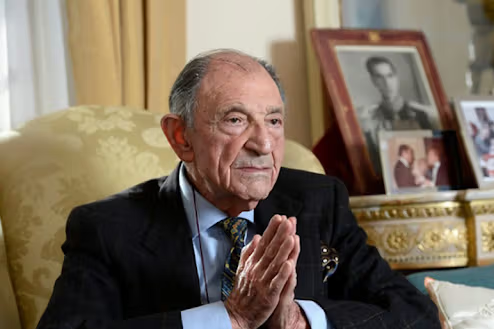
Ardeshir Zahedi, former Iranian foreign minister, ambassador to Washington during the monarchy and son-in-law of the Shah passed away in exile on Thursday.

Ardeshir Zahedi, former Iranian foreign minister, ambassador to Washington during the monarchy and son-in-law of the Shah passed away in exile on Thursday.
Zahedi who lived in Switzerland was 93 years old and was born into a powerful family in 1928 in Tehran. His father, Fazlollah Zahedi, was a general who served as prime minister and played an instrumental role during political upheaval in Iran in 1953 when he led a military coup that brought Mohammad Reza Shah Pahlavi back to power.
Zahedi who attended an American School in Beirut continued his education in Utah State University and graduated as an agricultural engineer. After returning to Iran, he became a senior official in the Point Four assistance program launched by US President Harry S. Truman in 1949.
Zahedi served as ambassador in Washington from 1960-1962 and again from 1973 until the 1979 revolution. He was foreign minister from 1966-1971.
In the final years of his life Zahedi adopted controversial positions, including his praise for Quds Force commander Qasem Soleimani who was killed by a US drone attack in Baghdad in January 2020, ordered by former president Donald Trump.
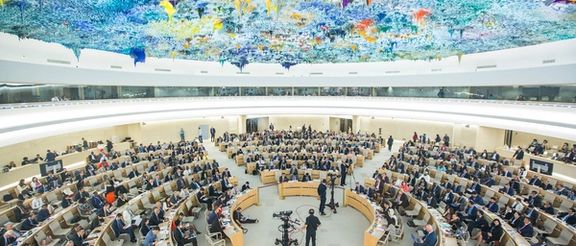
Iran said Thursday that Canada must "stop systematic policy on killing indigenous people" after the UN passed a Canadian-sponsored resolution censuring Iran for serious rights abuses.
Saeed Khatibzadeh, the foreign ministry spokesman, said Thursday that the resolution by the General Assembly's Third Committee was "based on weak and scattered international votes" and alleged that many countries voting in favor had been subject to "various political pressures and threats".
The spokesman called on Canada to accept responsibility for its complicity in Israeli “crimes against humanity against the Palestinian people.”
Iran often responds to allegations of human rights abuse by claiming the double standards of the accuser. When asked in June about his role in the 1988 prison executions in Iran, President Ebrahim Raisi (Raeesi) accused the Mujahideen-e Khalq of violence, the opposition group whose members made up the bulk of those executed in 1988.
Human Rights Watch recently said the Canadian government, which refuses to accept the International Criminal Court considering alleged Israel crimes in occupied territory, supported “draconian military rule over Palestinians in the occupied West Bank.”
The resolution by UN Thrid Committee on Iran expressed concern at the “alarmingly high frequency" of the imposition and carrying-out of the death penalty, including executions based on forced confessions or for crimes that do not qualify as the most serious crimes, were overly broad or vaguely defined. It passed at the UN General Assembly committee Wednesday 79-32, with 64 abstentions. The Iranian representative successfully requested a recorded vote.
The General Assembly allocates to its Social, Humanitarian and Cultural Affairs Committee, commonly referred to as the "Third Committee", agenda items relating to a range of social, humanitarian affairs and human rights issues that affect people all over the world.
The MEK immediately called for “the clerical regime, including [Supreme Leader] Ali Khamenei, Ebrahim Raisi, and Gholam-Hossain Mohseni Ejeii [the judiciary chief],” to be “prosecuted by international tribunals.”
Torture and cruel treatment
The resolution expressed serious concern at the imposition of the death penalty against those under 18 at the time of the offence. "Torture or other cruel, inhuman or degrading treatment or punishment," which the resolution said could include sexual violence, were also highlighted.
The resolution called for the release of anyone detained for exercising human rights and fundamental freedoms, including anyone detained solely over peaceful protests, including any in November 2019 and January 2020.
Iran was urged to "end reprisals against human rights defenders, peaceful protesters and their families, journalists and media workers covering the protests, and individuals who cooperate or attempt to cooperate with the United Nations human rights mechanisms."
Truth and reconciliation
Zahra Ershadi, Iran's ambassador and deputy permanent representative to the United Nations, in a statement read to the UN Third Committee, called the resolution "insincere and indefensible political." She said it “replete with factual errors…and unmasks the deliberate hostile policy of incitement to Iranophobia.”
Ershadi accused Canada of genocide over the 215 bodies of indigenous children unearthed in May at one of Canada’s largest residential schools for native Canadians and in its policies of forced assimilation. She said the wider West has been remained silent.
Canada’s delegate at the UN assembly said Wednesdaythat Canada has established a Truth and Reconciliation Commission. Prime Minister Justin Trudeau said Canadians were "horrified and ashamed" at how Canada had behaved and promised remedial action. A Canadian federal court in September upheld a 2016 ruling ordering the government to compensate indigenous children forced into foster care.
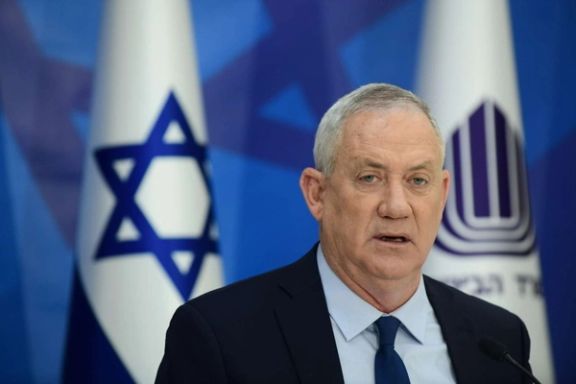
Israel has charged a household aide of Defense Minister Benny Gantz's with espionage, saying on Thursday he offered to spy on him on behalf of "a person identified with Iran.”
In a statement, the Shin Bet security service said the suspect corresponded with the unnamed person over social media. It said he provided photographs taken in the house as proof he had access and proposing installing malware on Gantz's computer.
The Shin Bet said the suspect, who performed housekeeping and cleaning tasks in Gantz's residence, was indicted on espionage charges by a court in Lod, a city near Tel Aviv. It said he was arrested after an investigation earlier this month.
It was not immediately clear whether he had entered a plea.
The Public Defender's Office, which assigned a lawyer to aid the suspect, said he had acted out of "financial duress" and had not intended to harm national security.
Gal Wolf, the attorney representing him, implied on Kan public radio that the man had intended to extract money without actually being able to carry out any espionage.
"A person can boast and say he can deliver the goods, (but) the Shin Bet's statement does not stand the test of reality," Wolf said.
In its announcement, the Shin Bet said that while the suspect posed a potential danger to national security, he "was not exposed to classified material and subsequently none was passed on from him to the elements with whom he made contact".
Report by Reuters
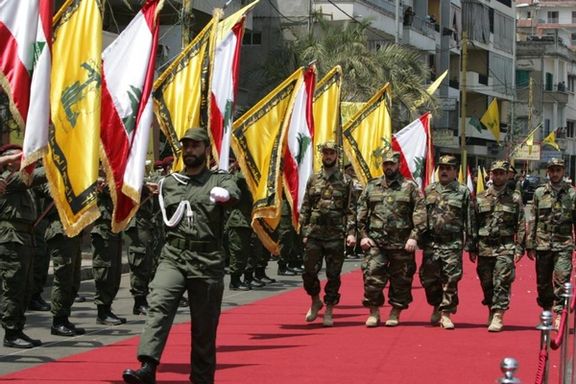
Prosecutors in Kuwait have detained 18 people suspected of financing Lebanon's Shi'ite Muslim group Hezbollah, local newspapers reported on Thursday.
They said the prosecution ordered the detainees to be held at the central prison for 21 days while investigations continue into alleged "membership in a prohibited party, money laundering and spying".
The Interior Ministry did not immediately respond to a Reuters request for comment. Gulf Arab states in 2016 designated Iran-allied Hezbollah a terrorist organization.
Lebanon is facing a diplomatic crisis as Gulf states become increasingly dismayed by Hezbollah's expanding influence over Lebanese politics.
Saudi Arabia, Kuwait and Bahrain last month expelled Lebanese diplomats and recalled their own envoys following a minister's critical comments about the Saudi-led military intervention in Yemen. Riyadh banned all imports from Lebanon.
Saudi Arabia's foreign minister said the measures were driven not just by those comments but rather by Riyadh's objections to the "domination" of Hezbollah.
Kuwait has long maintained balanced ties between its larger neighbors, but in 2016 it convicted a group of Shi'ite Kuwaitis for spying for Iran and Hezbollah, accusing Tehran at the time of seeking to destabilize it. Iran had denied any connection.
Report by Reuters
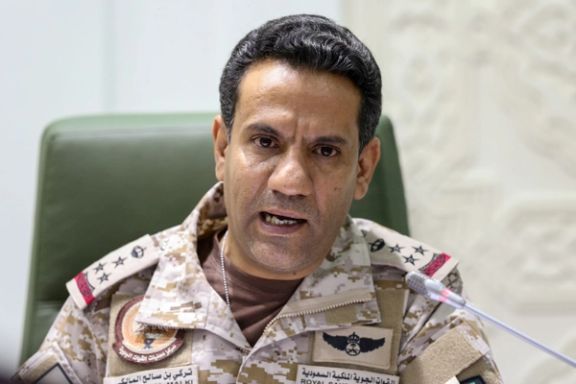
The Saudi-led coalition attacked Iran-affiliated targets in Yemen after intercepting a drone that attempted to attack an airport in Saudi Arabia on Thursday.
The coalition was taking "operational measures to deal with the sources of hostile cross-border attacks," Saudi state news agency SPA reported.
The coalition said later it conducted a wide operation on military targets in the Yemeni provinces of Sanaa, Dhamar, Saada, and al-Jawf in response to ballistic and drone threats, Saudi state TV reported.
Workshops and warehouses for ballistic missiles, drones, and communications systems were destroyed, it said.
The coalition added that it targeted what was described as a secret facility for experts from the Iranian Revolutionary Guards and Lebanon's Hezbollah, who it accuses of being involved in hostile attacks against the kingdom.
The military coalition led by Saudi Arabia intervened in Yemen in March 2015 after the Iran-aligned Houthi group ousted the government from the capital Sanaa.
Saudi Arabia says Hezbollah arms, supplies and trains the Houthis. Western countries and UN experts have accused Iran of arming the Houthis.
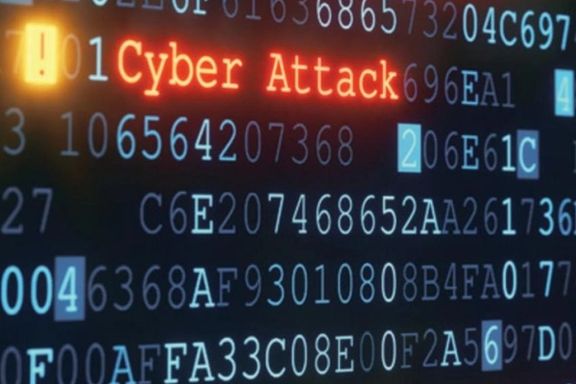
A hacking group "associated with the government of Iran" is launching disruptive-style cyberattacks according to a cybersecurity alert published by the US Homeland Security Department on Wednesday.
The attacks have targeted American companies, including healthcare providers and transportation companies.
CISA, the Federal Bureau of Investigation (FBI), the Australian Cyber Security Centre (ACSC), and the United Kingdom’s National Cyber Security Centre (NCSC) have released a joint Cybersecurity Advisory highlighting ongoing malicious cyber activity” by a group that FBI, CISA, ACSC, and NCSC assess is associated with the government of Iran.
“FBI, CISA, ACSC, and NCSC urge critical infrastructure organizations to apply the recommendations listed in the advisory to mitigate risk of compromise from Iranian government-sponsored cyber actors,” the statement by Cybersecurity and Infrastructure Security Agency has said.
Iranian hacking groups linked with the government of the Islamic Republic are among the world’s top cybersecurity threats, especially in targeting US, Israeli and European targets.